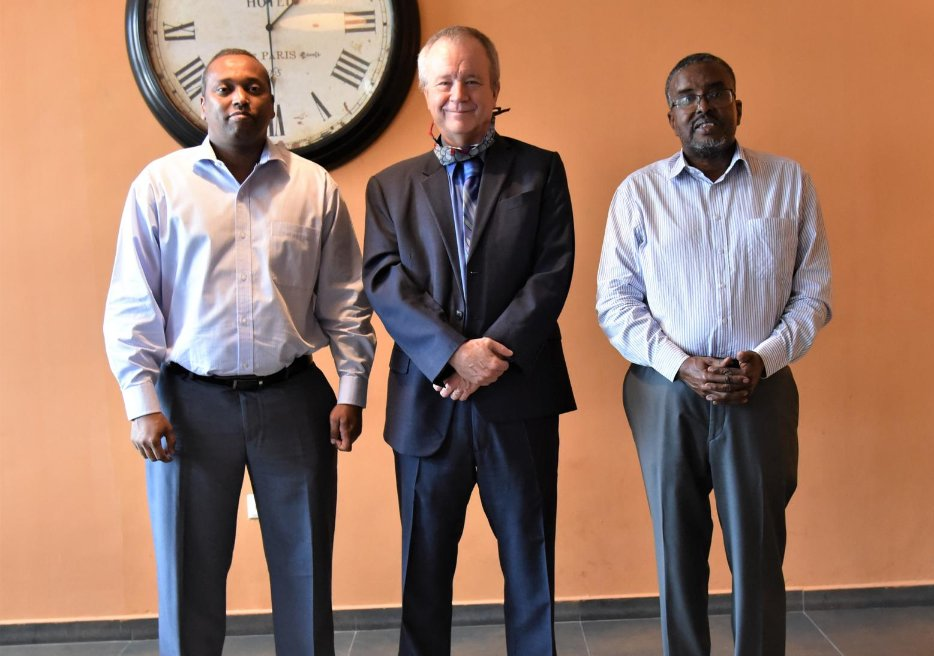Djibouti is one of the smallest countries in Africa, but it occupies a prime location at the southern entrance to the Red Sea, which connects Africa and the Middle East. Some of the world’s busiest shipping routes go through its sophisticated port.
Despite these advantages, Djibouti faces significant challenges, including high unemployment, pollution, and high electricity costs. That’s where CR Energy Concepts comes in.
U.S.-based CR Energy Concepts (CREC) is working on two difficult problems: a worldwide boom in landfill waste and an unmet demand for renewable energy. They have found an elegant way to solve one problem with the other, converting waste to clean energy. The company’s power plants use high temperatures in an oxygen-starved, non-reactive environment, creating energy without the harmful gases and carbon emissions of traditional incineration plants.
In August, CREC signed an agreement with the Government of Djibouti to build a $190 million renewable energy park. It will add 35 megawatts of base load electricity per hour to Djibouti’s grid, increasing the country’s capacity significantly.
The new infrastructure project will also have environmental benefits: today, much of Djibouti’s trash is burned in open-air landfills, polluting the air and causing problems for aviation. The new plant will reduce this practice, as it will consume much of the country’s waste. Its fuel will even include discarded tires, which are hard to dispose of and often collect water, becoming breeding grounds for mosquitoes that carry diseases.
“When my company looked to invest in Djibouti and develop a Renewable Energy Park, we recognized an opportunity to create a profitable business and address major environmental and energy challenges,” say’s CREC’s President and Managing Partner, Joe Yavorski. The park will be the first infrastructure project in Djibouti built by the U.S. private sector. Ninety percent of the equipment will be American made, and the deal is projected to support $115 million in American exports. Building the facility will create about 100 local construction jobs, and, once it is fully operational, the plant will support about 80 local employees.

CREC’s success is a strong example of the U.S. Government’s Prosper Africa Initiative at work. Prosper Africa is a whole-of-government initiative to substantially increase two-way trade and investment between the United States and Africa. The Initiative brings together the full range of U.S. Government resources to connect U.S. and African businesses with new buyers, suppliers, and investment opportunities.
The U.S. Embassy Djibouti Deal Team helped CREC close this deal by facilitating introductions to key investors. The Embassy helped CREC negotiate nearly 150 million in debt financing. “The U.S. Embassy in Djibouti worked closely with CREC from the beginning to locate U.S. financing for the project, facilitate negotiations with the Djiboutian government, and navigate the local commercial landscape,” says CREC’s Yavorski.
The new facility will include a medical clinic to support the work force. In addition, CREC will construct a training center to train employees on new technology. “This is a trademark of U.S. Foreign Direct Investment,” says U.S. Ambassador to Djibouti, Larry E. André. “We invest in the local population with whom we do business. Skills training and education are keys to the long-term success of this project. It is my sincere hope that this project will pave the way for more and larger U.S. infrastructure projects in Djibouti.”
Opportunities like this one are a win-win for the U.S. and Africa, and Prosper Africa is working to close more deals like it, strengthening ties and fostering shared prosperity.
“For others who have an appetite to do business in Djibouti, I can say that the effort involved in creating an infrastructure project in Africa is great,” says CREC’s Yavorski. “But the pay-off is even greater, and a U.S. Government team is there to assist you throughout the process.”
Read more interviews and stories featuring investors and business leaders in the Prosper Africa Blog.

